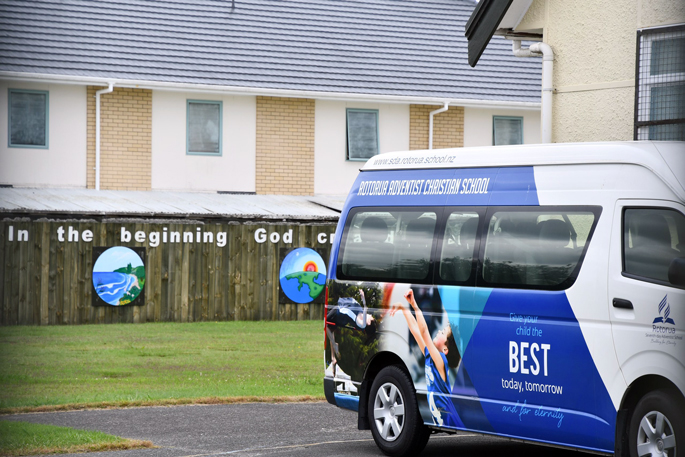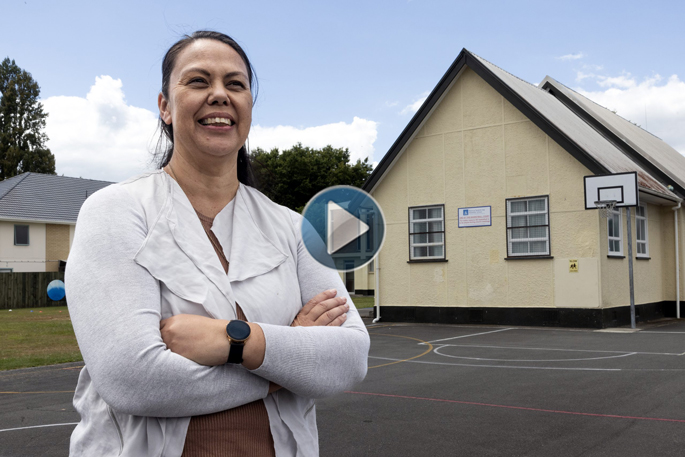A small Rotorua school that fought plans to allow higher buildings in its neighbourhood after finding human poo, drug paraphernalia and sanitary pads on its grounds is celebrating a win.
Rotorua Seventh-Day Adventist School attributed the problems – which also include incidents of a man with his hand in his underpants and children being sworn at – to residents of a nearby motel that was being used for emergency housing.
School leaders spoke out against Rotorua Lakes Council’s Plan Change 9 at public hearings last year, sharing their concerns for the privacy of vulnerable children.
The plan proposed greater housing intensification by allowing medium-density living across most of the urban area, and high-density living (six-storey buildings) in and near the city centre and commercial centres.
Medium-density enabled three storeys and up to three houses on one section, depending on criteria such as section size.
Fenton Court Motel, Seventh-Day Adventist School’s next-door neighbour, was in a zone that could be built up to 24m under the proposed plan.
Principal Lanea Strickland and other school representatives opposed the plan using similar arguments and examples to those school leaders raised during 2022′s emergency housing resource consent hearings.
Strickland told the panel her concerns included possible long-term viewing of students on the property by residents that the school would not know about.
There was an incident where a man stood at an “open upper window in his underpants with his hand in them”.
Children had been sworn at from the windows, and litter in the playground included human poo and drug paraphernalia. A neighbour began helping to clear the area before children arrived.
On Wednesday, the council’s Community and District Development Committee voted to support the hearing panel’s recommendations for the plan, which included not allowing any future development of the Fenton St motel above its current 12m height.
The panel’s report said it would be inappropriate to allow for it to reach the 24m its zone would otherwise enable.
Considering the “graphic and disturbing evidence of the appalling behaviour of the special housing tenants”, keeping it to 12m would enable the school to provide for its social and cultural wellbeing, and particularly for health and safety, “now and into the future”, the report said.
Strickland shared her joy at the decision with Local Democracy Reporting, saying the school was grateful to have been listened to, despite it being “Rotorua’s smallest school”.
 Rotorua's Seventh-Day Adventist School borders what used to be an emergency housing motel. Photo / Laura Smith.
Rotorua's Seventh-Day Adventist School borders what used to be an emergency housing motel. Photo / Laura Smith.
She understood the motel returned to tourism at the beginning of the year, and so the news was an extra “blessing”. She said things at the school had returned to normal, and the panel’s recommendation was a safeguard.
“This decision has meant we are able to keep our children safe … having the confirmation has absolutely been the best thing for our school. We are very grateful.”
The changes made for a positive future, she said.
“The school is flourishing.”
Other changes the panel recommended were to constrict the high-density zone closer to the city centre, to extend the Marae Protection Overlay around Mataatua Marae to 40m, restricting residential activity at ground-floor level in the city centre, and to implement other controls particular to areas like at the school.
The plan change would have a final review before being publicly notified with an operative date.
Fenton Court Motel was approached for comment.
What councillors said at the meeting
There was division among councillors making the decision. Some, including chairwoman Sandra Kai Fong, considered the plan would ensure “we will have a city we can be proud of” and was the product of extensive community consultation.
Mayor Tania Tapsell called it a “step in the right direction for solving the housing crisis” in Rotorua.
Councillor Lani Kereopa believed “there is no protection afforded to existing papakāinga [housing on Māori land]”. She said there was harm in non-residential activity being allowed to happen in these areas.
“While to a certain extent, the end goal is for hapū to live peacefully within our own restored papakāinga communities, supported by our own circular economies … when I look at the disaster of Tarewa Rd where there is childcare and health facilities taking up the majority of space in what should be a papakāinga residential area.”
She said nothing in the plan acknowledged the existence of papakāinga communities that were there “1000 years before the council came into existence”.
Kereopa said protecting those communities from intensification and urbanisation was why she stood for council, but she did not believe it fitted in with current council systems and policy.
LDR is local body journalism co-funded by RNZ and NZ On Air.




0 comments
Leave a Comment
You must be logged in to make a comment.